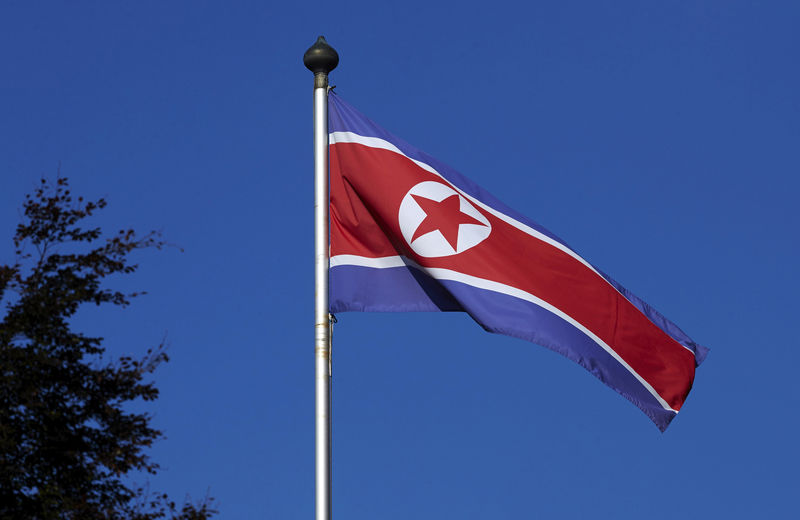(Bloomberg) -- North Korea’s economy shrank last year by the most since the peak of its 1990s famine, as international sanctions make it harder for Kim Jong Un to feed his people while developing nuclear weapons.
Gross domestic product contracted 4.1% in 2018, according to estimates from South Korea’s central bank. This marks the worst performance since 1997 when a series of droughts, floods and botched economic policies caused a deadly famine. GDP shrank 3.5% in 2017.
North Korea’s exports plunged 86% to just $240 million, while imports fell 31%, the Seoul-based Bank of Korea said Friday. About 90% of North Korean shipments go to China, the country’s biggest ally. China has beefed up its enforcement of sanctions since Pyongyang’s sixth nuclear test in 2017.
The annual report highlights the cost of defiance as North Korea holds on to nuclear weapons development despite tightening sanctions. Kim this week resumed launching ballistic missiles and unveiled the country’s largest submarine yet, even though just weeks earlier he met with U.S. President Donald Trump to rekindle nuclear talks.
“Sanctions have clearly bitten North Korea,” said Kim Suk-Jin, a researcher at the Korea Institute for National Unification. “It shows prominently in the drop in exports.”
The chance of starvation on a similar scale as before may be unlikely, because unofficial markets have mushroomed across the country under the tacit consent of the government. North Korea’s economy also shrank for nine years in a row during the 90s, while it contracted only four years in the 2010s.
With the Pyongyang regime not releasing official data, the BOK is regarded as the most authoritative source for economic analysis on its neighbor, though there are limits.
It’s not just North Korean industries suffering. The government is also struggling with a lack of money, South Korean lawmaker Kim Min-ki told reporters on July 16, citing a briefing by the National Intelligence Service. Crops in stock for this year are expected to dry up “early,” he said.
Per capita income in North Korea was estimated at 1.4 million won ($1,205) in 2018, or about 3.9% that of South Korea, the BOK said.
Statistics from other institutes also show the food situation is worsening. Paddy production fell at least 17% last year in provinces that account for half of North Korea’s rice, while sanctions have led to shortages of necessary agricultural items, including machinery and spare parts, the World Food Program and Food and Agricultural Organization of the United Nations said in a May assessment.
Estimates vary, but the number of people who died from starvation between 1994 and 2000 probably totaled from hundreds of thousands to more than a million, according to the Korea Institute for National Unification.
Below are further details from the BOK, which bases its calculations on data obtained from a range of South Korean agencies:
- The agricultural and fisheries industry shrank 1.8% last year, the most since 2010.
- Mining -- a cash cow for North Korea until sanctions started to target exports of iron ore, minerals and other resources -- contracted 17.8%, the biggest since estimates began in 1990.
- Manufacturing industry shrank 9.1%, while services industry managed a 0.9% increase.
- North Korea has seen a boost in tourism from China in recent years.
